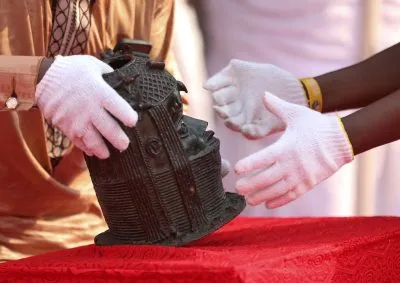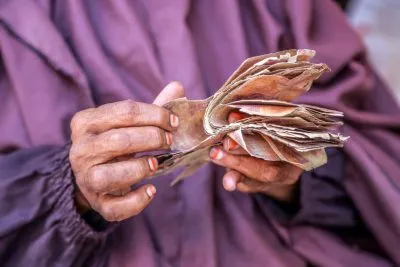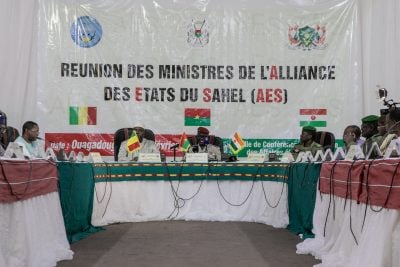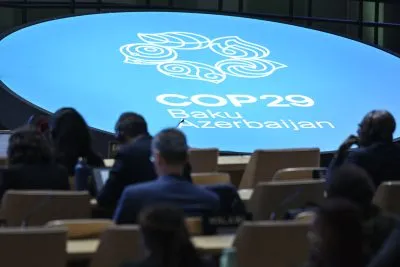This article is sponsored by Public Interest SA
The leader in the September 2023 issue of New African magazine, by the editor Anver Versi and titled “Is Russia a true friend of Africa?” has encouraged me to put forward some reflections that I believe may be of use to the continent’s policy makers going forward.
In the leader, Versi raised two very critical points that are having existential impacts on Africa, its future development trajectory and the fate of its burgeoning young population.
He pointed out that the UN Sustainable Development Goals, set in 2015, have lost their way at this half way point (only 12% have been achieved) and that in 2022, over 20m people and at least 10m children faced severe food shortage in Africa.
“The ECA calculates that Africa’s annual food imports bill, which was $15bn in 2018, will increase from the current $43bn to $110bn by 2025,” he writes.
According to UNCTAD, developing countries face a $4 trillion annual financing gap in achieving the SDGs and it will only increase as a result of the war in Ukraine. These are very worrying figures for a region that is still very young in its development trajectory and that needs all its resources, including its human resources to be working at peak in order to move up the development scale as required by the UN SDGs.
The elimination of hunger is very high up the list of priorities because without adequate food, no development is possible. Instead there is a distinct possibility that the continent may spiral into a vicious vortex and all the impressive development it has achieved so far will be erased.
This very distinct possibility has caused me – as I am sure it has many other people within and without Africa’s borders – sleepless nights.
I am also aware that following the economic blows many African countries suffered during the Covid-pandemic lockdowns, several nations are debt distressed. They are being forced to allocate very substantial amounts of their resources to debt servicing.
What is more, they are finding it impossible to borrow as the series of crises tightens the financial flows and interest rates continue to rise. While rich countries are able to borrow at 1%-4%, on average, poor countries have to pay over 14% for loans. This means that their ability to buy food for their populations has been drastically reduced. Barbadian PM Mia Mottley’s Bridgetown initiative could help Africa tackle these challenges.
Versi also says that one of the most significant causes of the current cost of living crisis in Africa, “which many regard as a Black Swan – unexpected and in this case brought about not by uncontrollable factors such as epidemics or climate change but from human choice – has been Russia’s invasion of Ukraine in 2022.”
He says that while many African countries who regard the war as a purely European issue “have no dog in the fight,” what should concern us all is “the impact of the war on Africa’s critical food security situation. And in this case, we do have a dog in the fight.”
Versi may be cautious in his approach and I would like to go further.
What I am concerned about is the impact of the war on Africa’s development and, more immediately, the critical food security situation.
Before the war, Ukraine and Russia exported more than 36% of the world’s wheat, about 50% of its vegetable oils and 28% of the global supply of fertilizer. These form the cornerstone of nutrition and food production.
Ukraine supplied 12% of Africa’s food needs while Russia’s contribution was around 32% meaning that almost half of Africa’s grain imports came from the region.
Broken food chains
Since the war in 2022, food supplies from Ukraine virtually disappeared while Russian exports became unreliable due to the exigencies of the war. This was a body blow to the global food supply chain and sent prices rocketing. As always, the burden fell most heavily on poor countries, many of them in Africa.
Following considerable diplomatic pressure and negotiations behind the scenes, both countries agreed the Black Sea Grain Initiative (BSGI), which permitted agricultural exports from three ports in Odesa region in south Ukraine and at enabled both countries to continue exporting via the Black Sea and Sea of Azov. Some grain from Ukraine was exported overland.
This allowed hard-pressed countries and food relief NGOs to bring some measure of relief to millions in Africa and also damped down global food prices.
Then less than a year later, Russia withdrew from the deal. Both countries made threats against each other’s ports, further disrupting supply chains.
Russia later bombed Ukrainian ports and it is believed, granaries, further impacting food prices around the world. In Africa, the impact was felt immediately as food prices shot up. The economic crunch is leading to an escalation of social unrest.
Faced with the prospects of hunger on a large scale, the African Union urged Russia’s President Putin to restart BSGI to help alleviate the suffering caused by its withdrawal.
Instead, Putin, addressing some 17 African Heads of State who attended the Russia-Africa Summit in St Petersburg in July this year, said he would make good the shortfall from the Ukraine supply and promised to ship 50,000 tons of grain aid to Burkina Faso, Zimbabwe, Mali, Somalia, Eritrea and Central African Republic – countries he felt were most in need of help.
He boasted that Russia had enjoyed a bumper harvest. One would have expected that he would have pledged a far larger quantity of grain to Africa and would have taken the opportunity to restart the BSGI and bring some economic stability, particularly to the developing world.
Time to choose
The Ukraine-Russia conflict is likely to last for a long time. Unless we play our role and call for action.
Some countries, such as Kenya, have engaged positively with Ukraine. President William Ruto made a point of meeting President Volodymyr Zelensky in New York City during the United Nations General Assembly – UNGA 2023.
He pledged his support for the Ukrainian cause and revealed that his counterpart has committed to creating a grain hub in the port city of Mombasa.
But some countries have shown strong support for Russia, perhaps out of a sense of loyalty, or to ensure their energy supplies are not compromised.
Africa has to make a stand and it is my opinion that it will be in the interest of the continent to bring pressure on Putin to cease this war of choice as soon as possible.
There is a moral case to consider. Russia invaded Ukraine. There is no doubt about that. Africa, having tasted the bitter experience of being invaded itself, cannot side with an invader, no matter what excuse is preferred.
Russia’s trade (apart from grains) and other countries is negligible in comparison with the West. The West is the largest investor in Africa; Russia has hardly any investments to speak about. The G7 has committed to spend 0.07% of its annual GDP on aid and many countries have achieved this, far outstripping aid from Russia.
I am concerned that some African countries are not being clear-eyed about where the continent’s interests – whether economic, moral or in terms of security – lie and are allowing themselves to pushed into corners that will become even more uncomfortable as time rolls on.
Africa is going through a major crisis on all fronts – it needs solid, reliable friends with whom it can negotiate on an equal basis. Russia is not that friend and the sooner Africa realises it, the better for all of us. n
Tebogo Khaas is the founder and chairperson of Public Interest SA. Public Interest SA NPC is a leading advocate for ethics, social justice, and transparency in South Africa. Comprised of dedicated individuals from various backgrounds, the team at Public Interest SA works tirelessly to promote ethical citizenship, address pressing societal issues, and contribute to the betterment of our world.
 Sign in with Google
Sign in with Google 



